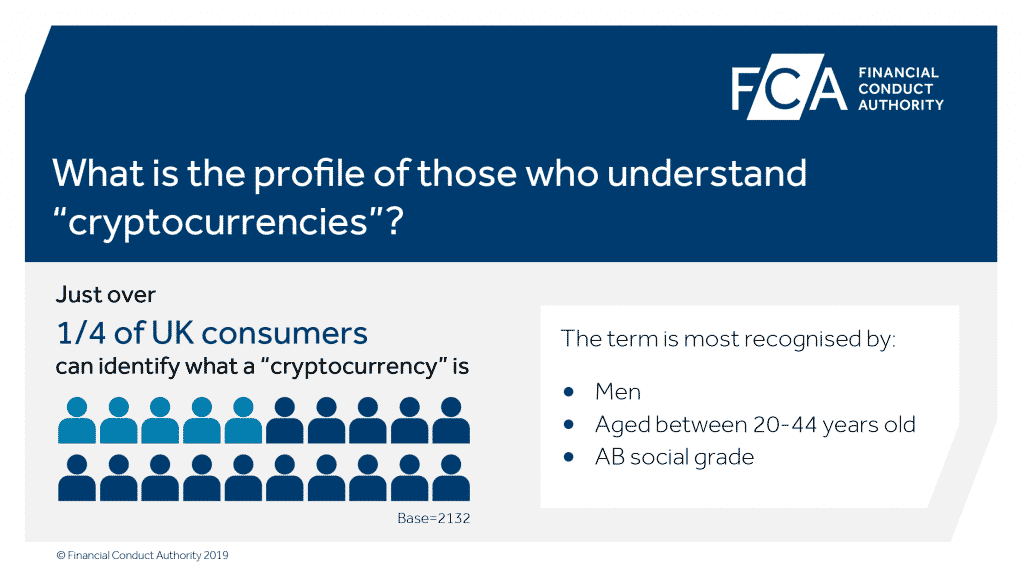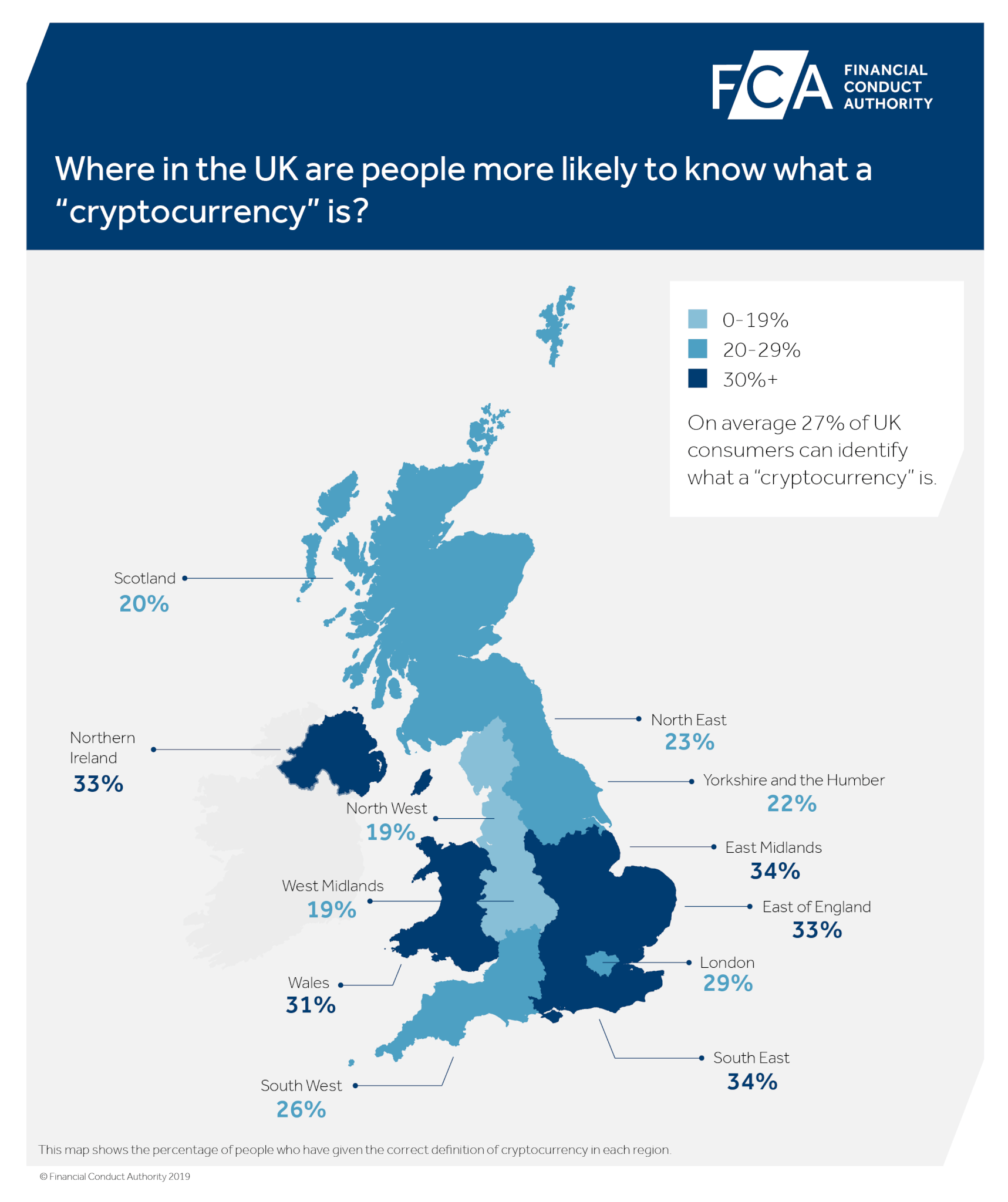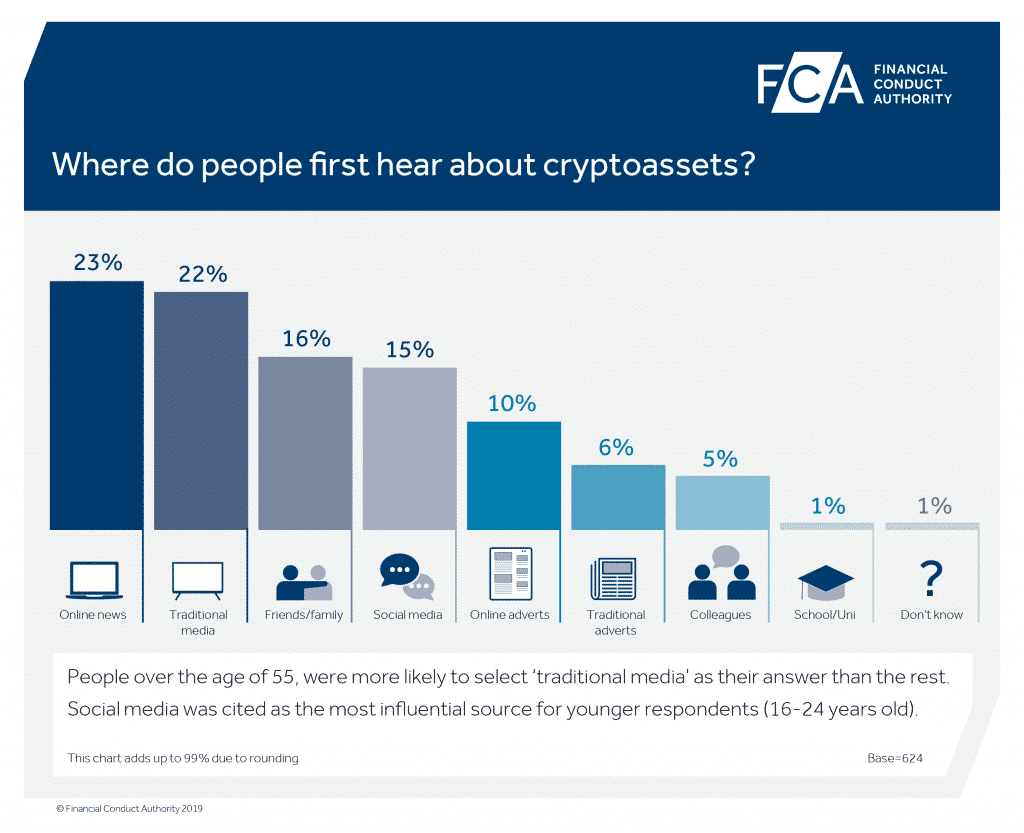
The vast majority of UK consumers are still largely clueless
about cryptocurrencies, and only a few of those who have invested in these have
actually completed “deep research” before purchasing, according to a new consumer
research produced by Kantar TNS and released
earlier this week by the Financial Conduct Authority (FCA), the UK’s financial
regulatory body.
73% of UK consumers surveyed don’t know what a “cryptocurrency”
is or are unable to define it. Those most aware of them are likely to be men
aged between 20 and 44.

The FCA estimates that only 3% of consumers surveyed have
ever bought cryptoassets. Of the small sub-sample of consumers who have bought
cryptoassets, only 8% conducted research beforehand and over one in three have
never checked the value of their cryptocurrency since purchasing.
“The results suggest that although cryptoassets may not be
well understood by many consumers, the vast majority don’t buy or use them
currently,” said
Christopher Woolard, the FCA’s executive director of strategy and competition. “Whilst
the research suggests some harm to individual cryptoasset users, it does not
suggest a large impact on wider society.”
“Nevertheless, cryptoassets are complex, volatile products – consumers investing in them should be prepared to lose all of their money,” Woolard warned.

Of the consumers who have not purchased any cryptocurrencies
so far, only 7% would consider it in the future.
A separate
research produced by Revealing Reality and also commissioned by the FCA
found that consumers’ skepticism about mainstream news, their wider attitudes
to life, and the sources of influence they were exposed to, all played a
significant role in shaping their decisions to purchase cryptoassets and
determining what what to do with them after making a purchase.
The research found that respondents’ engagement with
cryptoassets is often prompted by the advice of few but inordinately
influential recommendations. Consumers would typically buy cryptoassets
following the suggestion by a single acquaintance, or a persuasive online
source relaying the large sums of money to be made.

Their engagement with cryptoassets often features in the
context of multiple strategies they have explored to make money on top of what
they earned through employment. They often cited a motivation to make money
through minimal effort, seeking what they perceive as the “smart” way or the “shortcut.”
The FCA has warned in the past that cryptoassets are highly
volatile, risky and that many tokens are not regulated in the UK, meaning that
it is unlikely that consumers will be entitled to make complaints or be
protected by the Financial Services Compensation Scheme if things go south.
The regulator has been working with the government and Bank of
England, as part of the UK Cryptoassets Taskforce, to understand and address
the risks related to these. It is currently consulting on guidance to clarify
the types of cryptoassets that would fall within the existing regulatory perimeter
and HM Treasury is exploring legislative changes to potentially broaden the FCA’s
area of responsibility to bring in further types of cryptoassets.
Later this year, the FCA will consult on banning the sale of
certain cryptoasset derivatives to retail investors.
Commenting on the studies’ findings, Vaibhav Kadikar, CEO of
Decentralized Derivatives Trading Platform CloseCross, noted that the crypto
and blockchain industry was still in its early stages.
“The report should neither encourage nor discourage anyone
within the entire financial industry, from incumbents to startups, from
entering the space,” Kadikar said.
“At this early stage, the space is mostly dominated by
visionaries and early-adopters. While mainstream companies and developers may
be tempted to wait until the technology has been embraced by the masses, in
this fast-moving world that may be too late.”

